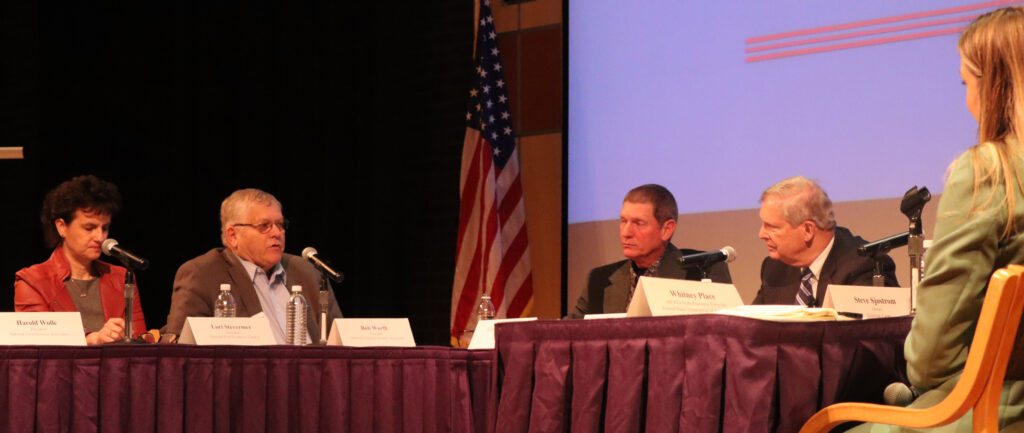Sen. Amy Klobuchar’s legislative assistants toured Minnesota this week, holding hour-long 2018 Farm Bill feedback meetings with constituents and laying out the Senate’s version of the 2019 bill.
MSGA Director Lawrence Sukalski attended the Mankato session, driving up from his Martin County farm to voice his concerns with the upcoming Farm Bill. The current farm bill expires on Sept. 30.
“Sen. Klobuchar has been a champion of agriculture and rural Minnesota,” Sukalski said. “She’s shown over the years that’s she willing to visit with farmers and work hard to protect agriculture.”
Klobuchar couldn’t attend the meeting because of looming legislation in Washington D.C., but addressed the 20-person crowd via a taped video message.
“Agriculture producers in Minnesota are facing a lot of uncertainty,” said Klobuchar, a ranking member of the Senate Agriculture Committee. “In the Senate, we’ve put politics aside to make the (farm) bill to work better for farmers and ranchers in the state and across the country.”
The Senate bill includes Klobuchar’s provisions that would help provide certainty to farmers and ranchers, amendments to restore mandatory funding for renewable energy programs, create an animal disease and disaster program, and support dairy farmers. The bill also protects and expands crop insurance, preserves a strong safety net for farmers, and maintains important access to food assistance for families in need while cracking down on fraud and abuse.
The Senate hopes to have its version before July 4. The House is re-voting on their version this week, with a possible conference committee to follow in late July or August.
“From the senator’s perspective, the most important thing, is especially with low commodities and uncertainty around trade and weather uncertainty as always, passing a strong bipartisan bill that will provide certainty for farmers was the most important thing,” said Brian Werner, Klobuchar’s legislative assistant. “Overall, (the Senate bill) strengthens the crop insurance program and improves access for a lot of beginning farmers.”
Sukalski addressed the forum with his concerns about rural economic development. In Martin County during the 1980s, agriculture contributed 30 percent of the property taxes collected. Because of investments in renewable fuels, infrastructure, livestock and exports raised the price of the land; as a result, Martin County farmers now pays more than 70 percent of the property taxes in the county.
“A successful agriculture is paying the bills for grandma and grandpa and the soccer moms,” he says. “It’s really important to keep the price of the land higher.”
Klobuchar’s stafff continued their listening sessions through Thursday.
Tags: Farm Bill




